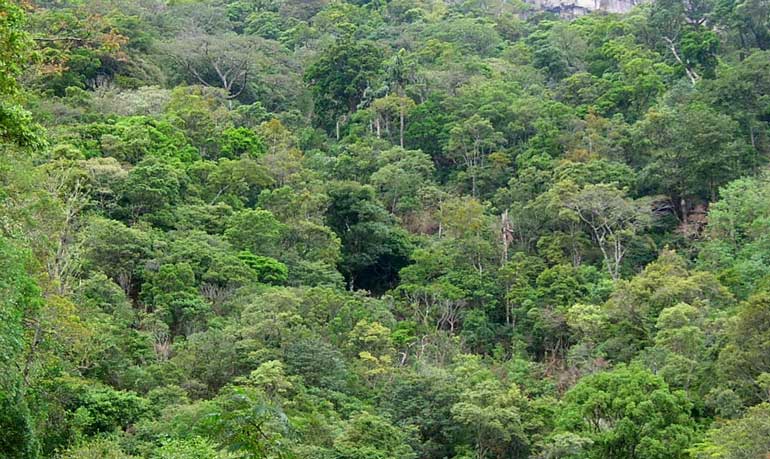Monday Feb 23, 2026
Monday Feb 23, 2026
Monday, 21 March 2016 00:00 - - {{hitsCtrl.values.hits}}
 Proclaimed International Day of Forests, by the United Nations General Assembly, 21 March signifies a day of celebrating the value of forests while at the same time raising awareness of the importance of all types of forests. This year the United Nations collaborative initiative on Reducing Emissions from Deforestation and forest Degradation (UN-REDD), together with the Forest Department of the Ministry of Mahaweli Development and Environment have taken special measures to place emphasis on the key role of forests in the planet’s supply of freshwater.
Proclaimed International Day of Forests, by the United Nations General Assembly, 21 March signifies a day of celebrating the value of forests while at the same time raising awareness of the importance of all types of forests. This year the United Nations collaborative initiative on Reducing Emissions from Deforestation and forest Degradation (UN-REDD), together with the Forest Department of the Ministry of Mahaweli Development and Environment have taken special measures to place emphasis on the key role of forests in the planet’s supply of freshwater.
Forests act as natural water filters, producing cleaner water than can be achieved by any man-made filter system, by trapping water pollutants in the forest litter. When sustainably managed, forests contribute significantly to reducing soil erosion and the risk of landslides and avalanches, which are natural disasters that can disrupt the source and supply of fresh water. Forests serve to protect and rehabilitate areas prone to soil degradation and erosion, especially in upland areas.
Forested watersheds and wetlands supply 75% of the world’s accessible fresh water for domestic, agricultural and ecological needs. Watershed management refers to an integrated approach of using natural resources in a given geographical area drained by a watercourse.
It is by maintaining and providing high quality fresh water that watershed areas have a pivotal role in the earth’s ecology and contribute significantly to the wealth and welfare of human societies. About one-third of the world’s largest cities obtain a significant proportion of their drinking water directly from forest areas and this number will only continue to increase as urban centres grow in size and population.
Improved water resource management in developing countries can show considerable economic gains, where an investment could have direct annual income returns from 200% to as much as 400% the cost of investment.
Forests stand at the forefront in the battle against climate change and play a crucial part in reducing its effects. In respect to water, one benefit is the forest’s cooling effect on the environment produced through evapotranspiration and the provision of shade. The impacts of climate change may also be manifested in an increase in catastrophes such as floods, droughts and landslides – all of which are a result of the reduction of forest cover. Moreover, large-scale deforestation can have a significant impact on precipitation patterns.
The partial or complete removal of tree cover accelerates water discharge, increasing the risk of floods during the rainy season and the chance of drought in the dry season. However, the services by ecosystems around the world, particularly wetlands, are in decline. As a result an immeasurable extent of our ecosystem, services were lost over the last couple of decades due to land usage.
Nearly 80% of the world’s population, that’s 8 out of 10 people, is exposed to high levels of threat to water security. By 2050, an extra 2.3 billion people are projected to be living in river basins under severe water stress, especially in North and South Africa as well as South and Central Asia.
REDD+ is a forest-centred, land use strategy that helps protect our water resources, among other benefits.